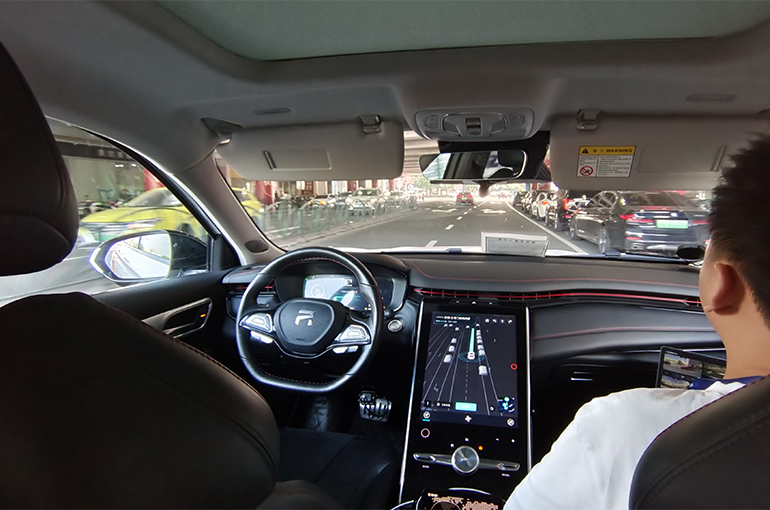 AI Is Crucial in Reshaping Global Auto Industry, China EV100 Vice Chairman Says
AI Is Crucial in Reshaping Global Auto Industry, China EV100 Vice Chairman Says(Yicai) Sept. 30 -- The global auto industry is undergoing a significant transformation and artificial intelligence has emerged as the key driver of innovation, according to the vice chairman of third-party think tank China EV100.
The shift towards electrification already altered the automotive landscape, with the rise of intelligent technologies further revolutionizing the sector, Zhang Yongwei, who is also secretary general of China EV100, said at the Global Intelligent Vehicle Industry Conference held yesterday.
"The technological high ground and strategic competitive edge in the auto industry are rapidly shifting towards AI-driven intelligence," Zhang noted. Traditional competitive advantages may no longer be sufficient to support firms in this new era, he added.
Smart cockpits and intelligent driving systems are replacing engines and transmissions as core features, with the influence of AI tech on vehicles progressively intensifying, according to most industry insiders.
However, there is a critical challenge facing the auto industry, Zhang pointed out. "In the AI era, production capacity is no longer a crucial factor for the competitiveness of carmakers, but rather, what they lack the most is computing power infrastructure."
Companies failing to prioritize AI or lagging in developing core competencies in computing power, chips, and algorithms are risking "losing their future," according to Zhang.
There are massive computing requirements for end-to-end autonomous driving development and training, with a starting point of 1 EFLOPS, Zhang noted. This demands substantial and ongoing investments in computing power and building large-scale teams focused on data, computing power, and algorithms, he added.
"Without computing clusters of thousands or tens of thousands of cards and algorithm teams of similar scale, companies will struggle to remain competitive in the new market environment," Zhang said.
To address these challenges, carmakers should set up collaborative data and computing power-sharing mechanisms, Zhang noted, adding that this could include jointly building data platforms and sharing computing resources.
"The data from a single automaker is insufficient for training software and systems," Zhang said, stressing the importance of solving the problem of large-scale data collection and utilization, as all competitiveness in the AI era relies on data-driven training.
According to Zhang, a data-sharing mechanism can be created where companies contribute and use data based on market principles, aiming to overcome the obstacles posed by limited data scale in tech development. Embracing AI and fostering collaboration are the key strategies for China's evolving auto industry to maintain global competitiveness, he added.
Founded in 2014, China EV100 is a nonprofit organization aimed at boosting the development of the electric vehicle industry, and its staff are high-level government officials, scholars, and industry professionals, according to its website.
Editors: Tang Shihua, Martin Kadiev